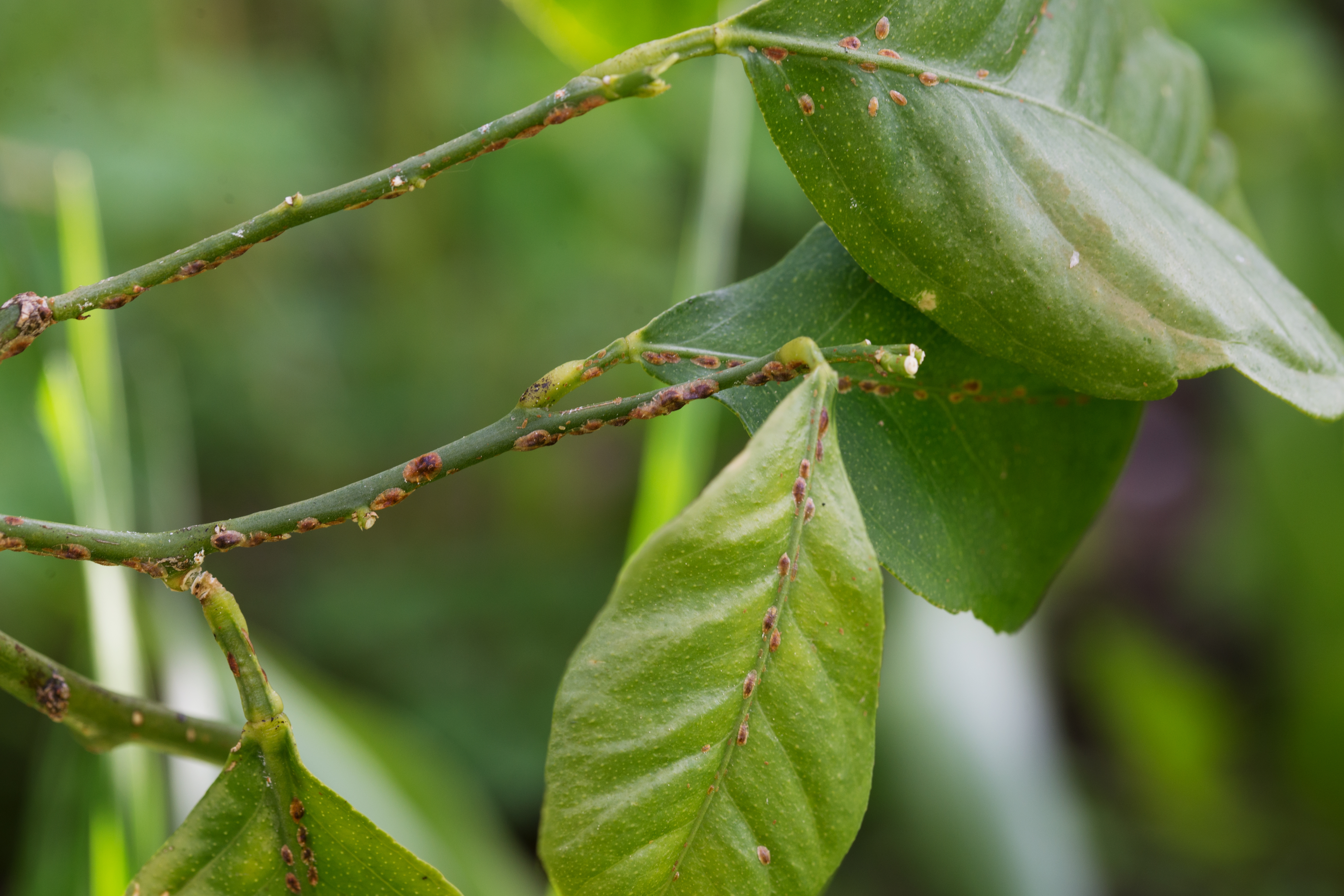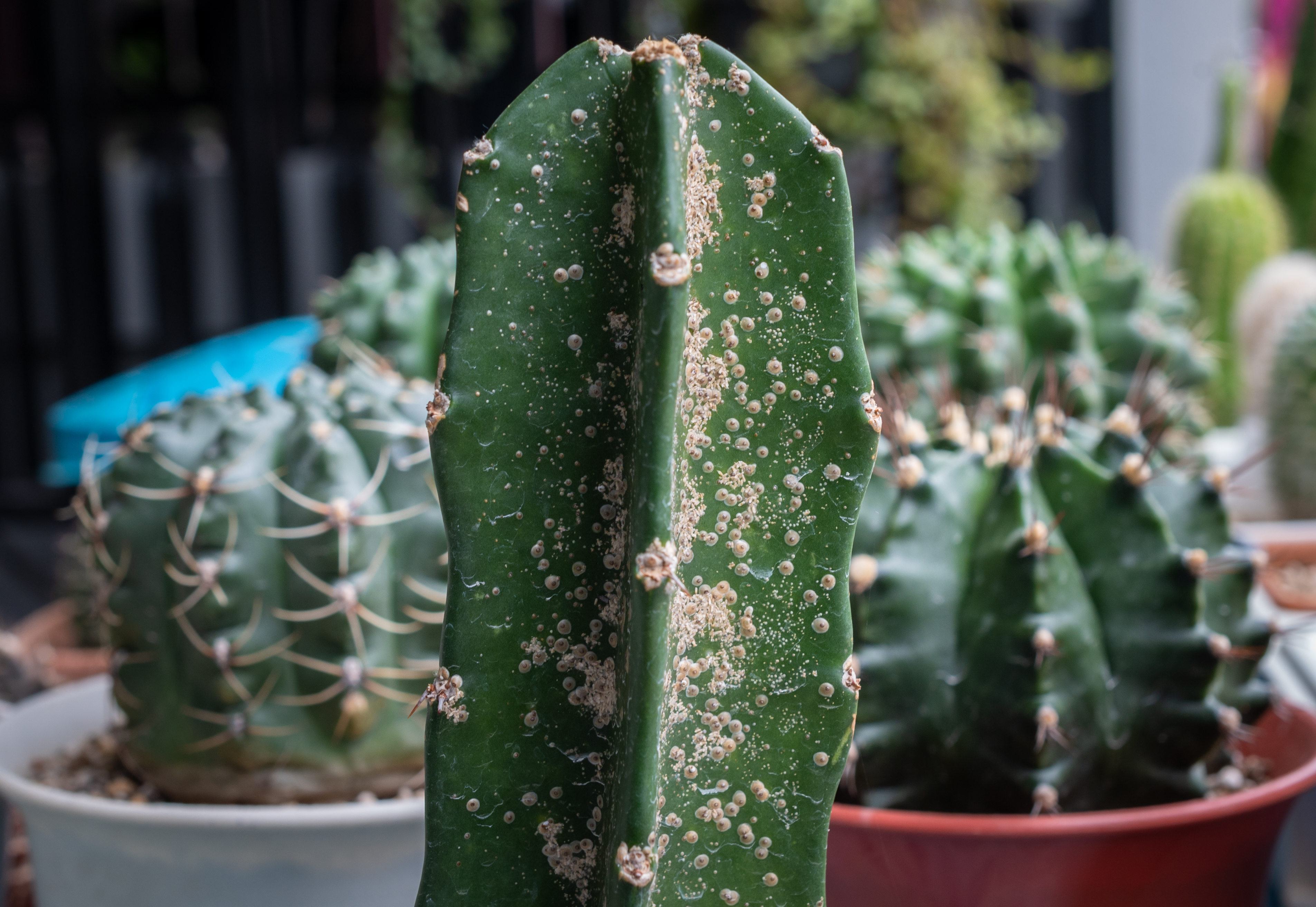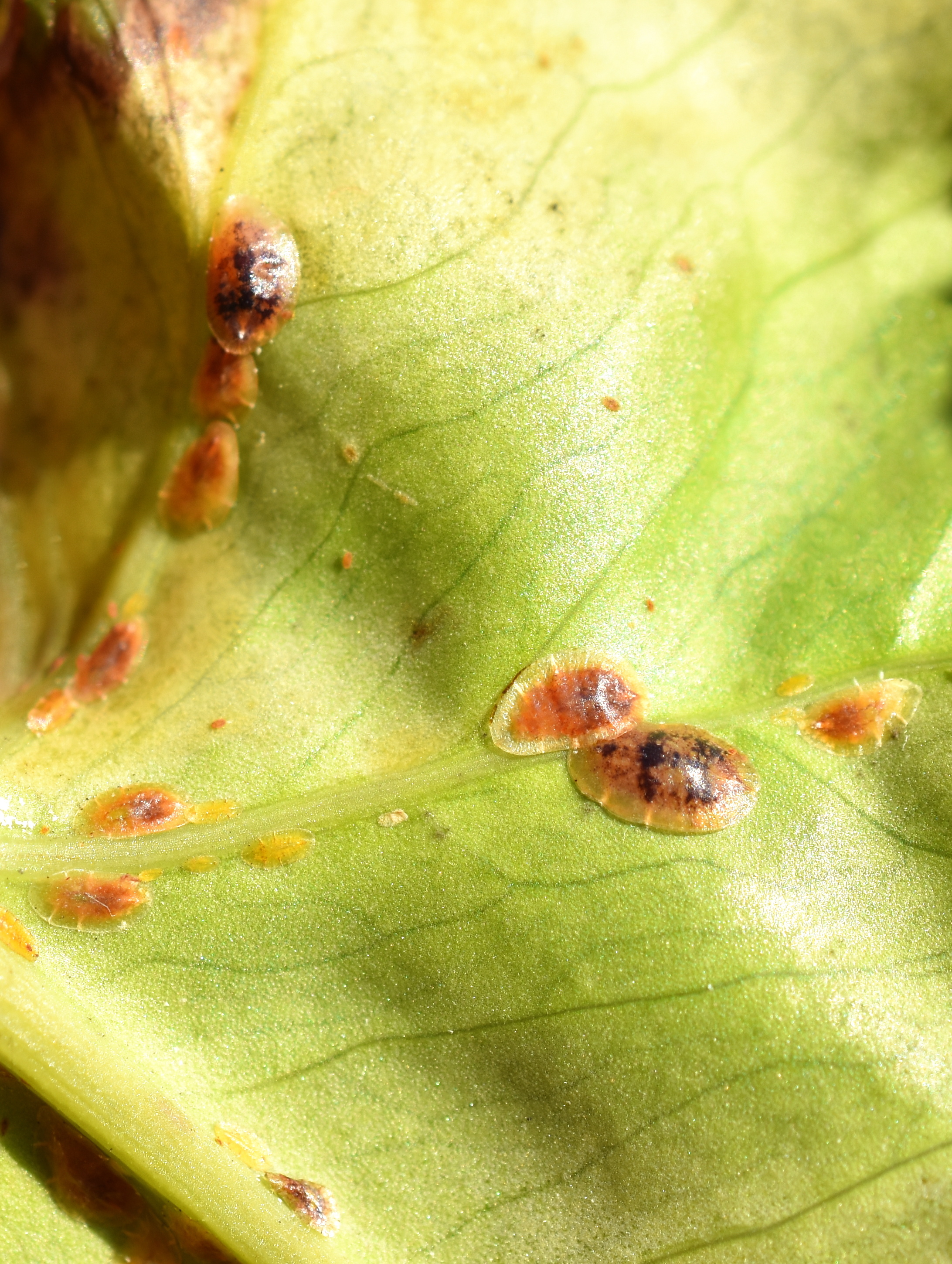Scale

Want to learn more about Diagnosis: Scales
Get individual care schedule and reminders for your plant with our app Planta. Never kill a plant again!
What are scales?
Scale insects are common unwelcome visitors on many varieties of houseplants. They spread fast once they get established. That's why it's so important to catch an outbreak in an early stage before it gets out of hand. They are difficult and very time-consuming to get rid of.
Symptoms
Glossy, sticky leaves
Sticky surfaces around your plant
Black spots and patches from sooty mold that has established on the honeydew they excrete
Small bumps that look like scales - mostly on stems, petioles, top side of the leaves and along leaf veins
On outdoor plants - Ants can be seen on plants infested with mealybugs, aphids, white flies or scale insects

What to do now
Isolate the affected plant. Check surrounding plants for scale insects
Fight mechanically by removing all visible protective shields. Use tweezers, a rough sponge, a soft brush/toothbrush or your fingernail
Shower your plant with a jet of water to dislodge any crawlers on the plant
Treat your plant with a pesticide or insecticidal soap
Clean windows and wall surfaces where the plant has been placed
Repeat the treatment several times over the next few months
Consider using biological pest control. Can sometimes be controlled or kept in check with biological controls such as the lady bug Cryptolaemus montrouzieri

Common questions
Where are scales typically found?
These insects typically prefer warm, dry conditions, and can show up indoors or outdoors. They are usually brought in by introducing a plant that's already infested. This is one reason why it’s always a good idea to quarantine a new houseplant. There are over 8,000 different species of scale, each with their own preferences for the type of plant/environment they like.
What do they eat?
Scales are sap-sucking pests, and they’re usually not fussy about which plants they feed on.
Can they fly?
Some have wings, but they don’t function particularly well so they are very unlikely to use them. Spread will generally occur during their ‘crawler’ stage.
Why are they so hard to get rid off?
They attach very firmly to their host plant. They also form a waxy armor coating, under which they lay eggs. These protective shields are very resistant to treatment, so it can be difficult to eliminate or prevent spread with pesticide alone. This is why mechanical removal is necessary. You may need to take several different steps or treatment options in order to eradicate them, especially if your plants are indoors where there are no biological predators. Once you’ve physically removed all visible scales, make sure to follow-up with insecticidal soap or horticultural oil to eliminate the crawlers as well.
When scale insects are in their juvenile stage they are active crawlers and freely move around on the plant. They will be most susceptible to pest treatments during this stage. This is why repeat treatments may be necessary to break the scale life-cycle.
There are both contact and systemic treatments that can be used against scale insects
How can I tell if they are scales?
It can be hard to tell the difference between actual scale insects and normal parts of the plant or discoloration/spots from e.g. edema or mechanical injuries on the plant. One way to tell them apart is that scale insect are easy to remove with fingernail or tweezers and doesn't leave any marks or dents on the plant. A removed scale insect would be easily squished and identified as a bug.
How do they look like?
Although individual scale insects are small, they tend to gather in clusters, which makes them easier to spot. They can vary in size, shape and color between all the different species. Among the most common scale insects are: Brown soft scale, Hemispherical scale and Ivy Scale.
How can I prevent this in the future?
Regularly checking your plant’s overall health can help to prevent a repeat infestation. If you do spot a few scale insects, you can use a cotton swab to coat them with alcohol, which will cause them to detach from the plant. If you manage to do this early, it is much easier to prevent a full-scale outbreak.
